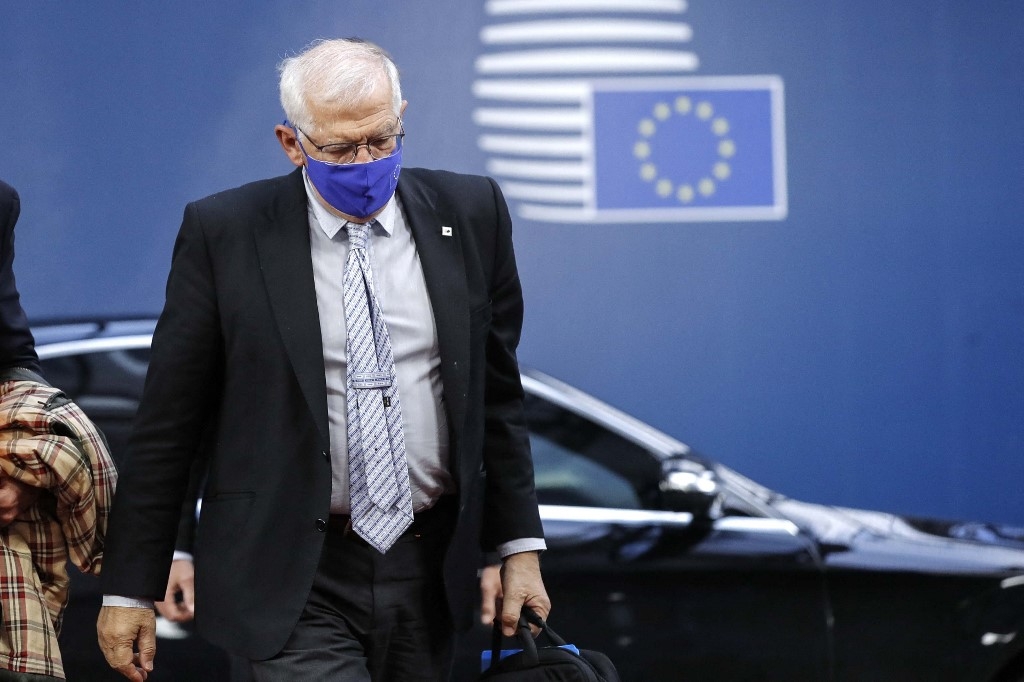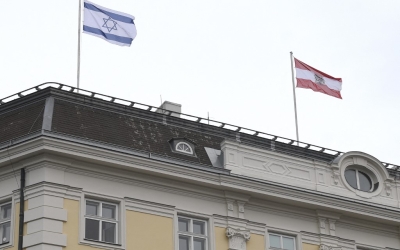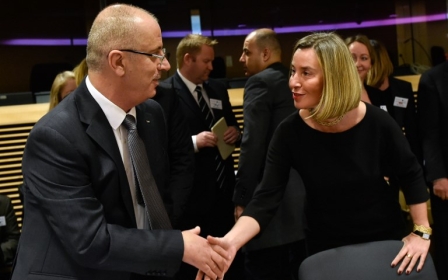Israel-Palestine: The EU does not lack leverage. It prefers not to use it

Speaking about the recent escalation of violence in Gaza, Josep Borrell, the European Union’s high representative for foreign affairs and security policy, told a news conference that the EU had “no capacity to resolve the Israeli-Palestinian conflict” because it “lost its leverage a long time ago and currently has limited influence”.
Upon hearing this, Europeans can only wonder: What has gone so wrong? Why has the foreign policy chief of the EU, a global economic powerhouse and Israel’s top trading partner, publicly declared the organisation incapable of influencing the Israeli government on human rights?
Only by pointing out the shortcomings, inertia and, at times, indifference that has constrained the EU's capacity for action, can this self-limiting trend be reversed
In fact, the EU has deliberately, gradually and steadily tied its own hands in all matters concerning Israel/Palestine. For years, the EU has taken great care to discourage, undermine or dismantle any initiative that would increase its institutional capacity to respond to Israel’s systematic human rights violations. It has failed to transform its economic, political and cultural leverage into human rights improvements.
Take, for instance, the planned upgrade of EU-Israel relations in 2009. In the wake of Israel’s 2008-09 military offensive in Gaza, the EU opted to freeze this much-anticipated deepening of bilateral relations, conditioning its revival on Israel’s respect for human rights and international law.
Yet, while this freeze technically remains in force to this date, the EU has since upgraded relations with Israel through enhanced trade deals, closer cultural and scientific ties, and transport cooperation, among other items.
New MEE newsletter: Jerusalem Dispatch
Sign up to get the latest insights and analysis on Israel-Palestine, alongside Turkey Unpacked and other MEE newsletters
Undermining EU influence
In 2018, the EU launched a “comprehensive review of the modalities of EU engagement” on Israel/Palestine to ensure its engagement was “as efficient and as effective as possible to reach the goal of a two-state solution”. Yet, while this offered a great opportunity to rein in Israel’s illegal settlements, the EU left that element out of the review’s scope.
More recently, in the context of Israel’s moves towards annexing large parts of the West Bank last summer, foreign ministers from 11 European countries demanded that the EU develop an “options paper” laying out the union’s potential responses. The paper, however, was ultimately blocked by EU institutions.
The lack of political will to exert leverage is not the same as a lack of leverage. On many occasions, the EU has undermined rather than strengthened its actual and potential political influence over Israel, in order to protect the smooth operation of their economic, military and trade relations.
Borrell’s attempt to evade institutional responsibility does not remove the EU’s complicity in the appalling violations Israel has been committing across the occupied Palestinian territories. If anything, it stresses the structural problems within an EU that has progressively marginalised the role of human rights in its external actions.
This raises serious questions for the human rights community. Is the EU still a relevant interlocutor to defend human rights in Israel/Palestine? Palestinian civil society groups have repeatedly cited the EU’s utter failure to meet their human rights demands. The only variable is the specific excuse provided, from “internal fragmentation”, to “lack of leverage”, to “speaking to both sides” - you name it.
Commitment to justice
Only by pointing out the shortcomings, inertia, and, at times, indifference that has constrained the EU’s capacity for action, can this self-limiting trend be reversed. Today, the question is not what Borrell can do to positively influence the parties in Israel/Palestine, but to what extent he is determined to exert the political leverage the EU has over the Israeli government.
Being prepared means making preparations. In other words, the EU urgently needs to furnish its potential leverage with actual policies, processes and measures to ensure that serious violations of international law by Israel would trigger automatic, foreseeable and concrete results with respect to bilateral relations.
Such leverage could be exerted through the flourishing arms trade between major EU states and Israel. EU members that report data for arms deliveries supplied €682m ($830m) worth of arms to Israel, led by Italy, with €342m ($416m) between 2015 and 2019. Germany issued licences for arms sales to Israel worth €862m ($1.049bn) in the same period.
At the end of the day, the answer to the question of the EU’s relevance will depend on the level of commitment remaining within European institutions to the values of freedom, equality and justice for all people, which once made possible their own establishment.
The views expressed in this article belong to the author and do not necessarily reflect the editorial policy of Middle East Eye.
Middle East Eye delivers independent and unrivalled coverage and analysis of the Middle East, North Africa and beyond. To learn more about republishing this content and the associated fees, please fill out this form. More about MEE can be found here.





